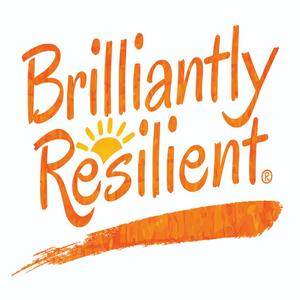Episode 216: Leading with Resilience, Compassion and Empathy with Catalynt Solutions Owner and CEO Meg Gluth
"It doesn't mean all the snacks in the break room are the greatest. It means that you work in a place that recognizes the dignity of you as a person, recognizes the value of your contributions, and recognizes that you're a human being with things to do." ~ Meg Gluth, Owner & CEO, Catalynt Solutions, Inc. Meg Gluth knows about the "critical importance of compassion, empathy, and resilience" in leadership. Growing up in poverty in rural Iowa, Meg's challenges eventually drove her to turn to alcohol as an "inappropriate coping mechanism" as she navigated the turbulent waters of young adulthood. Despite her alcohol addiction, Meg finished college after 7 years (she was kicked out of her first college), and was admitted to law school--with no way to pay for it. A remarkable act of kindness and faith changed Meg's outlook on life when the father of a friend co-signed Meg's loans and allowed her to pursue her goal. Still a functional alcoholic and despite more devastating hardships, Meg got sober in 2011, and began working for the company she would one day own and become CEO. Meg now leads Catalynt Solutions, Inc., one of the largest certified women-owned chemical suppliers in North America. Meg's experiences taught her that "Life is a full contact sport," but she still believes there is room in leadership for kindness and empathy--along with the necessary accountability. Meg believes that holding her employees accountable while respecting their humanity encourages everyone to not only own their mistakes, but grow into being part of the solution to challenges. Here at Brilliantly Resilient, we know the importance of accepting responsibility and being accountable for our mistakes, as well claiming our wins. Growth and evolution happen when we realize that as humans, we will always have seasons of success and failure, but we can live and lead with kindness and grace through both. Check out Meg's website for more and tune into this week's episode of the Brilliantly Resilient podcast to hear more of Meg's wisdom. Be sure to listen for these additional bits of brilliance: Life is a full contact sport and our acceptance of that is sort of one of the key defining moments. I accept the full contact nature of the sport and I accept the discomfort. We look at people suffering and we don't want them to suffer. But the very suffering, the, the intensity of the suffering is what somebody like me needs in order to get out. Because change and resilience and healing and recovery is an inside job first. The start of resilience in a business is to say, OK, I see that you messed this up. I also know that you hold within you and this opportunity holds within it the seeds of some success to come from this failure. And I'm going to ask you to lead us out of it. That is the core of resilience. I'm not asking you to be perfect, but I'm asking to be a person that grabs for the rebound after you missed the shot. You can be compassionate. You can be kind and hold someone accountable. Accountability is the structure and the discipline and the knowledge for an employee, for a child, for a spouse. This is what it takes. These are my boundaries. This is what it takes to be successful. When people know where the bar is and they know where the line is, they feel more comfortable.somehow we've lost the narrative. We've lost the discussion around accountability, being loving. You are capable of being up here. You're performing down here? My job is to say to you I'm going to push you. I'm going to stretch you. I'm going to grow you to your capacity because I know when you're standing on the top of that line how good you're going to feel about yourself. And by the way, when you feel good about yourself and you're at your capacity, it turns into real. In this business, in life in general, I think it's OK to say I call myself a human centered capitalist because I I am. I don't make any secret of the fact that I want a for profit company that makes money. That's sort of the point. We can also be mindful in that that there is dignity and working hard and going home at the end of the day saying I earned this pay check. Where you are is the perfect place to start. Let's be Brilliantly Resilient together! (And click here to buy your copy of From Broken to Brilliant: How to Live a Brilliantly Resilient Life, by me!!) XO, Mary Fran

